Whether you’re an outgoing thrill-seeker or a reserved peacekeeper, there’s something you’ll love about Japan regardless of your personality!
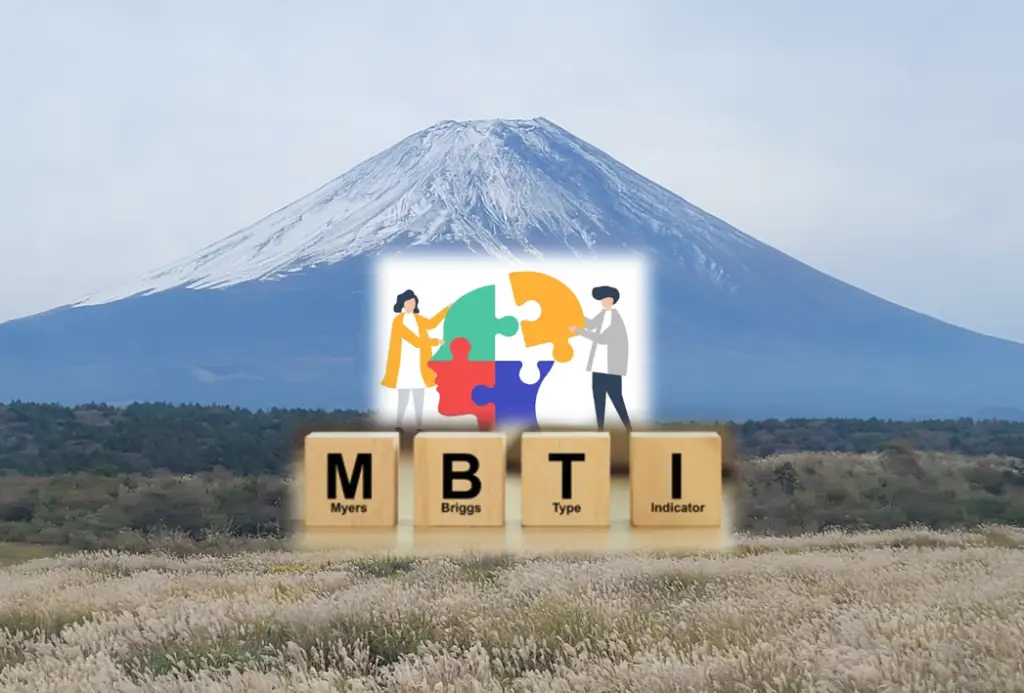
The Myers-Briggs Type Indicator (MBTI) is a framework designed to help people understand their cognitive functions and the underlying psychology behind how we gather information and make decisions.
Before reading this article, take the 16 Personalities Test to discover your MBTI personality type (it’ll make things much more interesting, I promise!).
Without further ado, here is what you’ll love about Japan based on your MBTI personality type!
Analysts
(INTJ | INTP | ENTJ | ENTP)
INTJ – “Architect”
INTJs are known for their impressive analytical abilities, enjoying intellectual discussion and creating workable solutions. The reason they’re nicknamed “the architect” is because of their ability to turn complex ideas into real, practical outcomes.
The INTJ personality type seldom enjoys small talk and would much rather keep to themselves than be in a non-intellectually stimulating environment for too long. For that reason, a country like Japan where people generally keep to themselves yet maintain a high level of politeness and social competence could be ideal for INTJs.
One thing that can really ick this personality type is incompetence, particularly when it affects other people negatively. Japan is a country of convenience, and there is a strong stigma against inconveniencing others. From lining up in an orderly fashion at train stations to the vast abundance of convenience stores and vending machines at every corner, there is not much that can trigger the INTJ, even if they can’t speak Japanese!
“Just plan it out!” – an INTJ (probably)
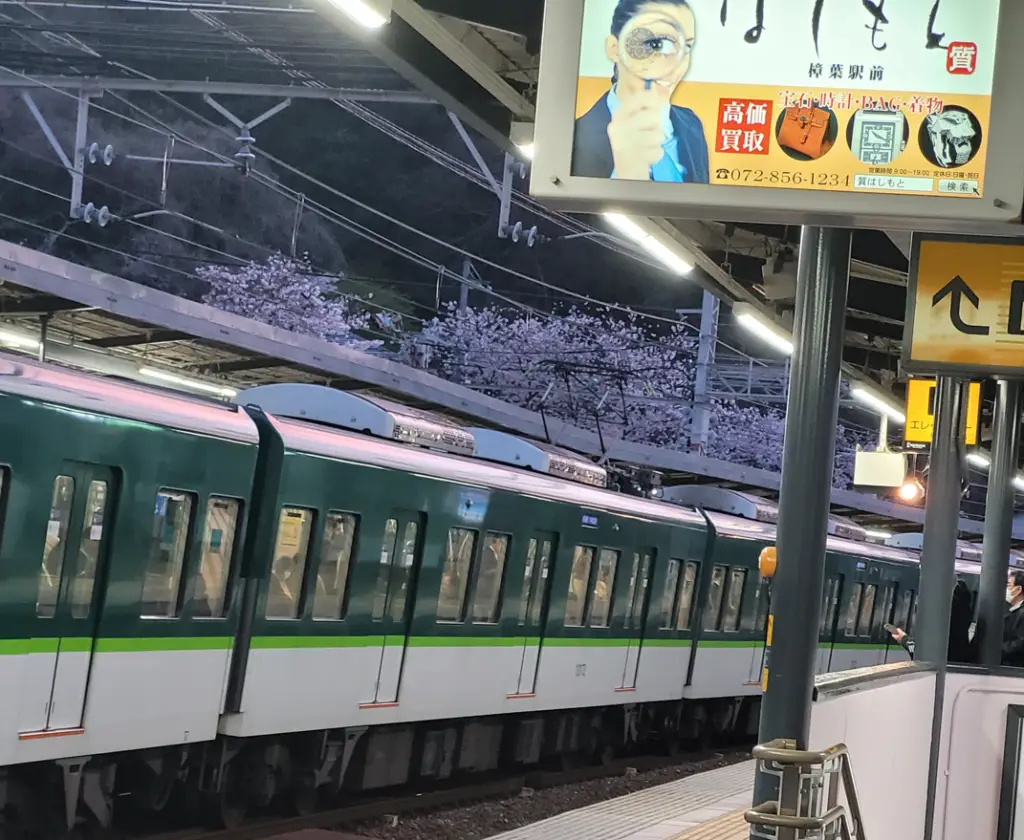
While not all INTJs are necessarily architects at heart, it’s most probable that they will also appreciate Japan’s unique architecture. Symmetrical and compact roads, narrow street designs, and traditional style “mokoshi” roofing makes for an aesthetic and surprisingly efficient architectural layout.
Japan’s ability to keep things running smoothly and efficiently in a densely populated society is something that this personality type may find most intriguing. As such, the INTJ will love Japan’s public transport system, unique architectural designs, and attitudes of mindfulness that keep up smooth operation!
INTP – “Logician”
INTPs also enjoy highly intellectual conversation, but the difference is they prefer to keep exploring new ideas and concepts. Instead of turning their visions into practical solutions like the INTJ, the INTP prefers to continue rocking the boat and changing their perception of reality by taking on different lenses and attacking problems from all angles.
As such, these “logicians” are not only highly intellectual but also highly imaginative, always on the lookout for that next cool invention or discovery that’ll take the world by storm. Despite being a culture steeped in tradition, Japan is also one of the most advanced societies in the world in terms of technology and engineering.
“Keep discovering!” – an INTP (probably)
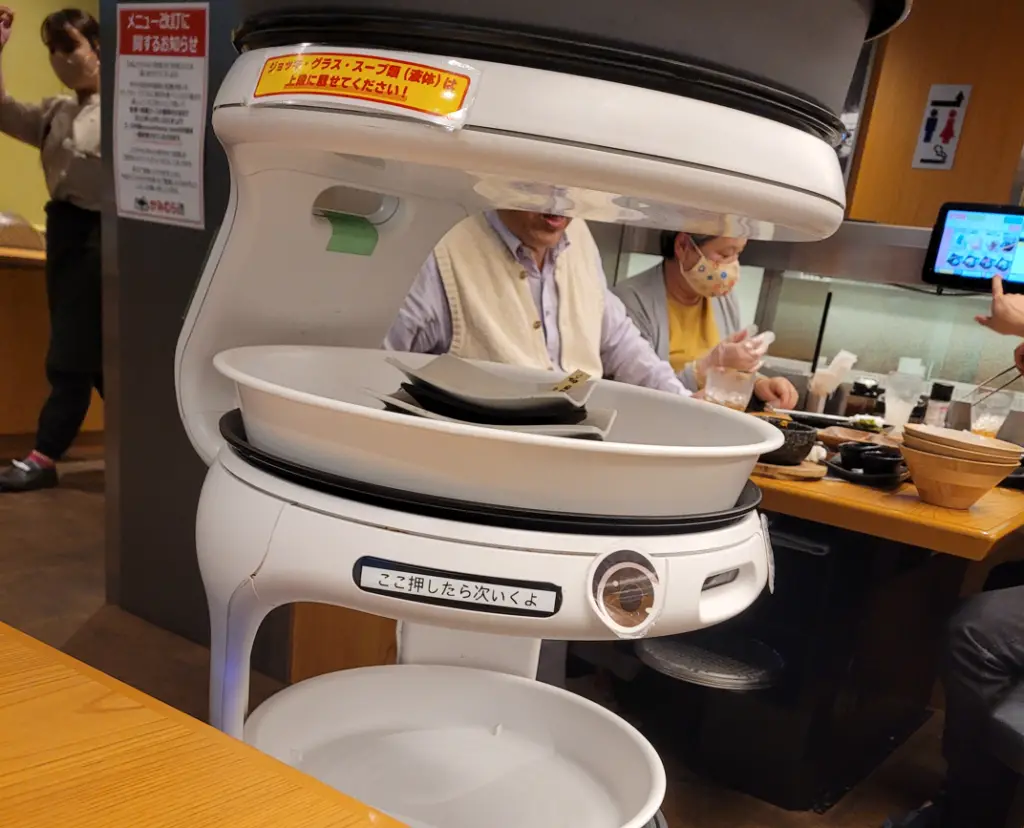
It’s not uncommon to see robot waiters, high-speed maglev trains, and new AI creations in Japan. Of course, these practical inventions aren’t the only thing that appeals to the logician, as even Japanese pop culture, food, and entertainment can entice the INTP’s mind.
Without a doubt, the INTP will love indulging in the imaginative side of Japan, always onboard to try something new to evaluate! Whether it’s a new gaming concept like Dance Dance Revolution or an interesting flavor of Kit Kat such as wasabi or soy sauce, there is always something unique to experience.
ENTJ – “Commander”
One of the more extroverted personality types is the ENTJ, known for their leadership skills and relentless pursuit of their visions regardless of the opinions of others. The “commander” leads with a dominant extroverted thinking function which makes them great at communicating their thoughts and analyses to others, while their secondary function of introverted intuition keeps them on track toward the “big picture” goal that they’ve set for themselves.
Hence, the ENTJ often find themselves leading teams and managing group efforts, but because of their far-reaching vision of the end goal, they often feel frustrated by incompetent people and inefficient processes. Japan is not necessarily the perfect society, but they do have unique ways of doing things, particularly in business and retail, that many outsiders would call “optimal” and “futuristic.”
“Get to the point!” – an ENTJ (probably)
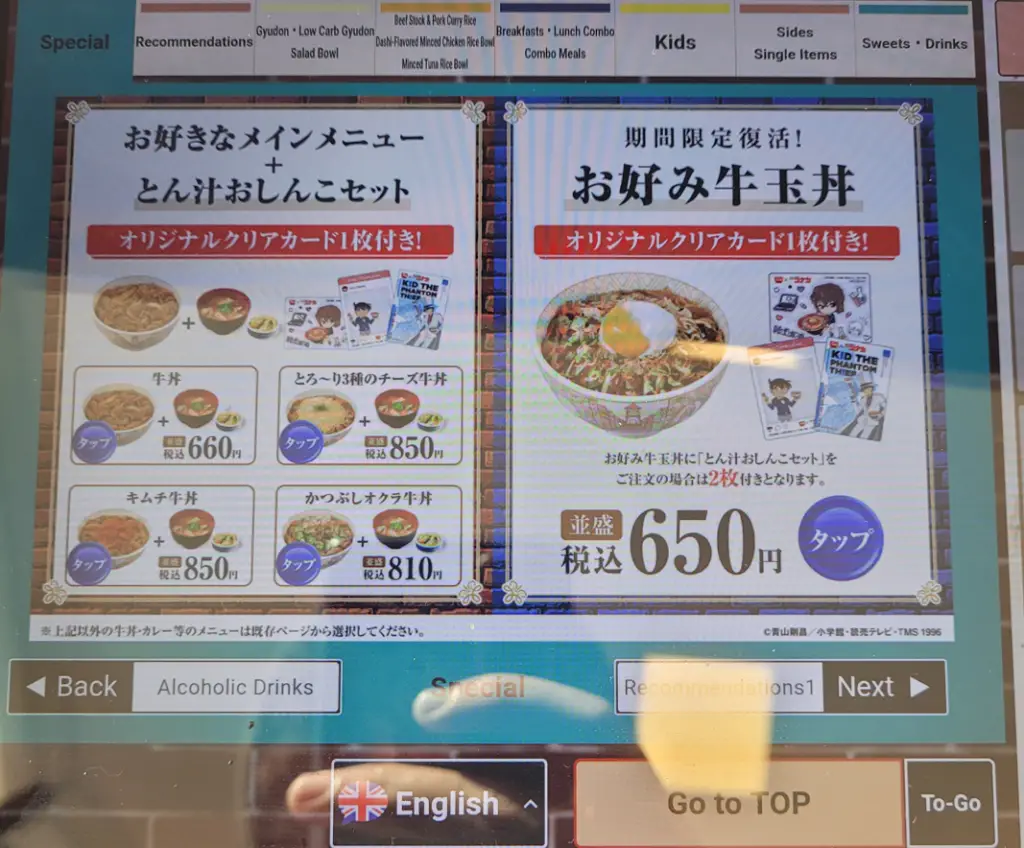
You can typically order your food from a touchscreen device and pay without any face-to-face interaction, greatly minimizing the possibility of human error. Efficiency, effectiveness, and convenience are all perks that are held to a high regard by the ENTJs who are very goal-oriented, so the quicker and easier you can get to the “good part” the better!
If you’re an ENTJ, you will absolutely love Japan’s 24/7 beef bowl restaurants for their incredibly easy ordering and payment systems, allowing you to get to the end result without a word of spoken Japanese. Other Japanese novelties that ENTJs would appreciate are the vending machines that not only sell drinks, but also ice cream, hot foods, and cigarrettes.
ENTP – “Debater”
As the INTP likes to shake up their inner world, the ENTP likes to shake up the world around them! Daring and outspoken, they are known as debaters for their fearlessness in challenging social norms and questioning anything and everything that has to do with people’s motives and way of living.
While Japanese society may not be too keen on having an ENTP show up and try to shake up the country’s beloved rules and processes, it may well be just what they need to advance. Contrastingly, the ENTP is likely to see Japan as a society that does things differently compared to the rest of the world, and while Japan remains a relatively conformist nation in and of itself, an ENTP visiting the country for the first time will appreciate the way they’ve resisted the influence of western powers and kept their traditions strong.
“It’s me vs. the world!” – an ENTP (probably)
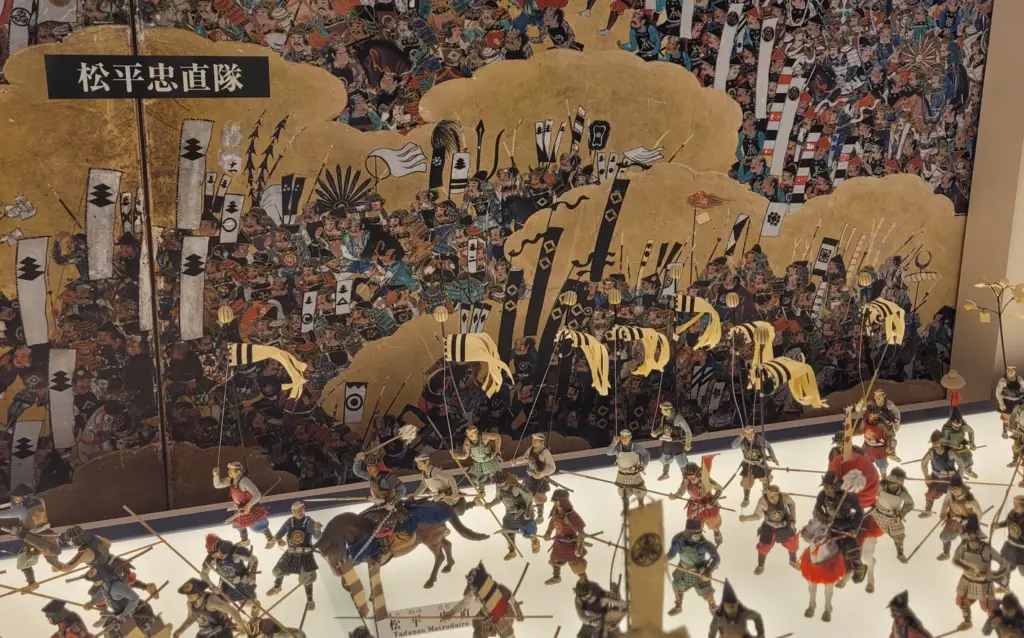
In a sense, Japan is a country that challenges the norms of the world, upholding social mannerisms such as bowing to one another and preserving traditional architecture such as Shinto shrines and Buddhist temples. While Japan maintains a surface-level politeness, behind the mask is a strong-willed society that refuses to bend to Western influences.
ENTPs will love Japan’s non-conformist attitude in the face of globalization and its strong-rooted cultural traditions that go against the norms of the modern world. I would recommend these debater personalities learn and experience Japan’s political history by visiting museums such as the one inside Osaka Castle or checking out Kyoto’s international manga museum.
Diplomats
(INFJ | INFP | ENFJ | ENFP)
INFJ – “Advocate”
Known as the “advocate,” the INFJ leads with a unique combination of introverted intuition and extraverted feeling. Essentially, they are visionaries who see the world through a lens of abstract philosophy, constantly searching for the deeper meaning in things (even when there is none to be found!). They are also highly empathetic in nature, giving them an uncanny ability to understand people’s emotions, often making good counselors and therapists.
As an INFJ myself, I can attest we often feel overwhelmed by social interactions, particularly because of the intensity with which we listen to other people as our minds constantly search for depth (again, even if there’s none to be found). A phenomenon that often occurs with this personality type is a lack of ability or motivation to deal with life’s “details,” i.e. the everyday tasks that must be done such as laundry, cooking, or cleaning. These tasks are simply a means to an end and don’t offer the mental stimulation of uncovering hidden truths and deeper meanings that we ultimately take on board to live better lives.
Now in comes Japan, the land of convenience, here to make the day-to-day lives of INFJs as simple and efficient as possible. Something as simple as wanting to buy a coffee can be a daunting task for this personality type who can’t help but mentally rehearse the interaction with the cashier before even leaving the house. Japan’s plethora of vending machines around every street corner is just one of the many ways the country reduces the need for human interaction, and while some personalities may find this to be a problem, for the INFJ, it’s a dream come true!
“Don’t stress me out!” an INFJ (me)

The layout of Japan’s convenience stores and the products and services offered are also a huge life-saver for the advocate personality type. Having one place where you can do everything from purchasing ready-to-eat meals, withdrawing cash from an ATM, printing and scanning documents, or just using the bathroom gives the INFJ some much-needed headspace.
Furthermore, INFJs greatly value social harmony, after all, social conflicts can leave a lasting impression on their minds as they try to make sense of the whole debacle and rack their brains over how such things can be avoided in the future. The Japanese way of life is one of mindfulness and care, and while the citizens of Japan typically keep to themselves in public, they are extremely helpful to one another when needed, always willing to put others before themselves.
Ultimately, INFJs will love Japan’s culture of mindfulness, care, and perfectionism. They will also appreciate the little things that make life easier such as vending machines, convenience stores, self-order restaurants, and anything else that lets them keep their minds spacious to ponder life’s more difficult questions!
INFP – “Mediator”
The best way I can describe the INFP is the “daydreamer” of the MBTI world, and I mean that in all the best ways! Empathetic, unassuming, and creative by nature, they’ve been coined the nickname “mediator” for their amazing abilities to bring balance to social scenarios and embody an all-accepting view of people regardless of their shortcomings.
While INFPs are natural social mediators and thrive well in groups, they need plenty of alone time to explore their inner world and vast imaginations. Visualizing social scenarios, different career paths, and creative hobbies to partake in, they would benefit greatly from a peaceful natural environment that can stimulate the imagination. Aesthetic mountain ranges, sparkling flowing rivers, and lush green bamboo forests are all snippets of Japan’s natural beauty that can help give peace of mind to the INFP while invigorating their creative faculties.
“Just let me be!” – an INFP (probably)
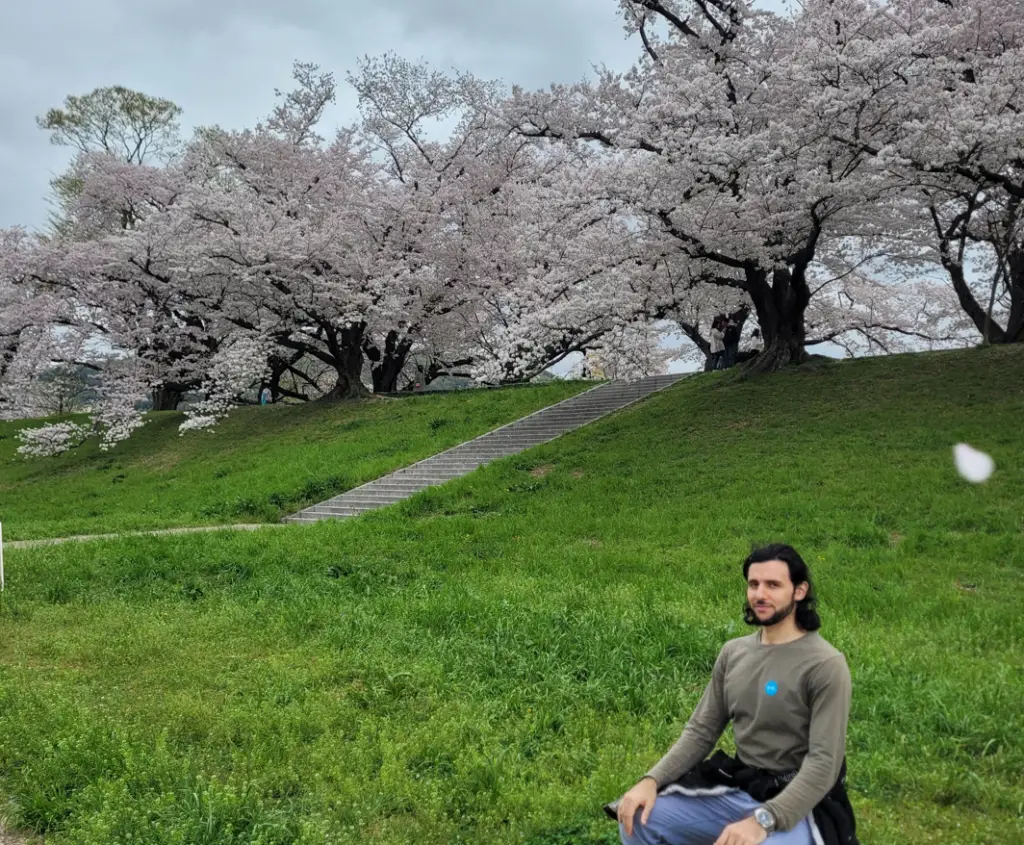
Abundant in mountainous lands that surround close-knit towns and villages, you’re never too far from spectacular scenery in Japan! One moment you’re in the thick of the urban life, and the next you could be in a Japanese farming village by the mountains, reminiscent of The Last Samurai movie.
Locations like Yodogawa Riverside Park, the Kamo River, and Mt. Fuji’s Lake Kawaguchi are all brilliant places of scenic beauty that can bring peace to the mind of the mediator. Yearning for harmony and acceptance, the INFP will love spending time in Japan’s scenic areas where they can connect with the unassuming, all-accepting embrace of nature.
ENFJ – “Protagonist”
Known as the “protagonist” for their exceptional leadership qualities and love and respect they earn from the community, the ENFJ personality is very much like a real life hero. They’re leading cognitive function extraverted feeling makes them among the best of the MBTI spectrum in understanding and empathizing with others.
ENFJs enjoy heart-felt conversations that revolve around one’s aspirations in life and, in particular, how they intend to make an impact on the world. Community-focused and results-driven, people look up to the ENFJ for inspiration as they demonstrate the heights a person can reach without compromising their core values. ENFJs understand the lasting impact that a single person can have on a community, so they take extra care to get to know people on an intimate level.
Japan is a very group-based society that prioritizes the collective hopes of the people rather than the ambitions of the individual. While ENFJs do enjoy discussions surrounding one’s individual goals, they just as easily get on board with the collective goals and unified visions of the community, driven to action by opportunities to change people’s lives for the better.
Excellent customer service, mindful manners, working hard, and respecting the elderly are all held to a high regard by both Japanese society and the protagonist personality type. The ENFJ is likely to desire more than just silent sightseeing in Japan but would love to get involved in things like tour groups, sports clubs, and other group-based activities that allow them to learn more about the individual stories of the Japanese people.
“What drives you?” – an ENFJ (probably)
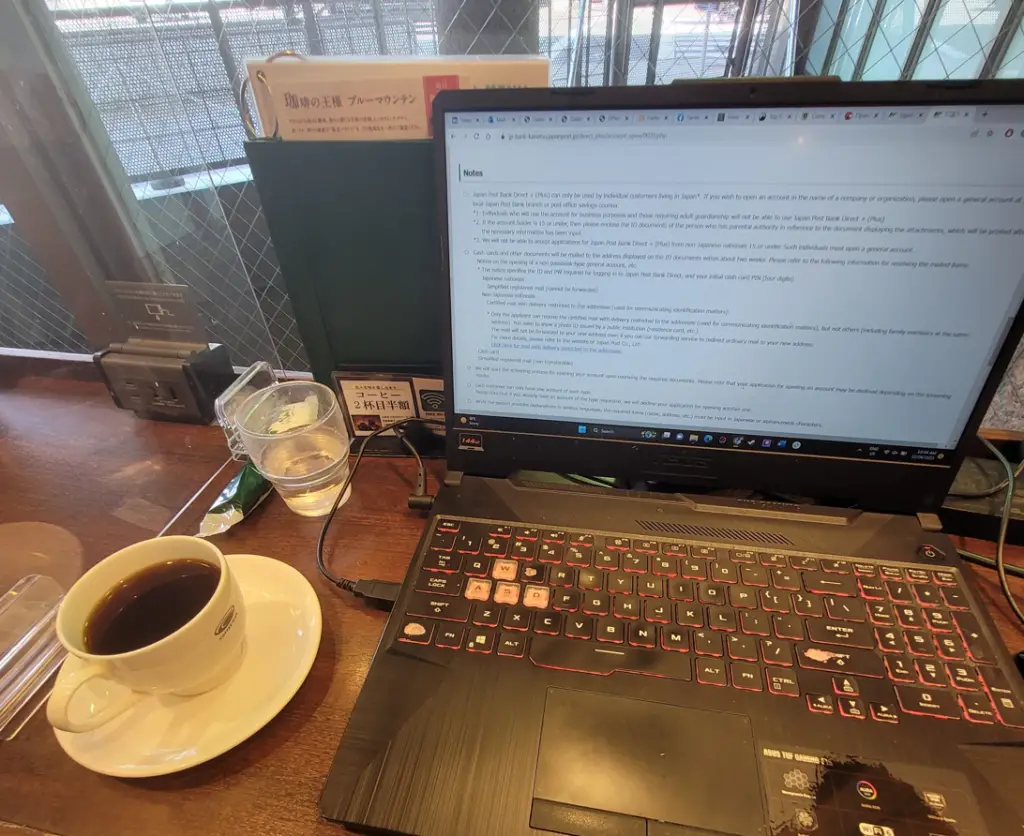
In fact, the best way to have a people-oriented experience in Japan is to explore the many cafes that the nation has to offer. By doing so, you get to spend intimate time with your fellow travel buddies while also engaging with the local community and getting to know people more deeply. Japan’s cafe culture is second to none as countless coffee shops are scattered across the entire country around every corner.
At the end of the day, ENFJs crave more than surface-level friendships, daring to dive deep into people’s stories and understand their hopes in life (and maybe give a piece of advice or two!). Of course, the language barrier might make this difficult for ENFJ foreigners coming to Japan, but one can always rely on translation apps or English-speaking Japanese folk to make meaningful conversation a reality.
Thus, it is fair to say that what ENFJs would love most about Japan is the cafe culture that facilitates long and intimate discussions between people in a quiet, peaceful, and respectful environment. They may also enjoy learning about Japan’s history and religions of Shintoism and Buddhism from a trusted tour guide in order to better understand Japanese values as a whole.
ENFP – “Campaigner”
ENFPs are natural born idea generators, seeing potential and possibilities in everything they lay their eyes on. Their primary extraverted intuition function makes it second nature for them to see the big picture in the small details of life, never allowing themselves to fall into mundanity and making even the most boring tasks of the day fun and upbeat.
As a feeler type, ENFPs are tuned in well with their feelings and know how to take care of themselves first before giving their energy to others. Being the optimistic individuals they are, exploring new territories and embracing different cultures comes naturally to them. They are nicknamed “the campaigner” for their ability to extract positivity out of most experiences, able to sell you on an idea even if they have no interest in pursuing it themselves.
“Live and learn!” – an ENFP (probably)

Of all the personality types, the ENFP is most likely to enjoy all aspects of Japan (or any new country for that matter) as they can extract positivity even from negative experiences. Don’t get the wrong idea though, ENFPs aren’t complete go-lucky hippies, but actually desire to know how things work. Perhaps they are the embodiment of “the deeper you go, the more you know,” because the more they ponder about something, the greater their urge to take action in order to learn more about it.
As such, ENFPs are likely to enjoy all that Japan has to offer from unique foods to historical artifacts, cultural norms, and natural scenery. In particular, activities such as cycling the Shimanami Kaido or exploring different prefectures via Japan’s bullet train would be treasured by the ENFP who loves to keep moving and keep discovering!
Sentinals
(ISTJ | ISFJ | ESTJ | ESFJ)
ISTJ – “Logistician”
Detail-oriented, practical, and “by the book” are just a few of the many traits that define the ISTJ and earn them the nickname “logistician.” They are the kind of people who can bring order to chaos and create ecosystems where communities can thrive, taking care of anything and everything from analytics to reporting and developing rules and regulations.
Every supply chain likely has a logistician along the way taking care of the details and ensuring smooth operations. Likewise, every law of every country probably has a logistician ensuring there are no contradictions between legal documents. In many ways, ISTJs are the backbone of society, and in many cases, they can even be considered geniuses for their incredible rationality and logical thinking, allowing them to excel in various areas of academia.
“Order please!” – an ISTJ (probably)

I could be way off the mark, but I almost feel that the average Japanese citizen is an ISTJ, or at the very least, Japanese culture exhibits many traits likened to the logistician personality type. Organized, attentive to detail, and highly respectful of rules and authority are some of the many common traits I’ve noticed between ISTJs and Japanese residents. Perhaps this stems from the collective nature of Japan where most people conform to social norms and traditions for the greater good of society, reluctant to “bend the rules” unless absolutely necessary.
Thus, it goes without saying that what the ISTJ will love most about Japan is the culture of respect, honor, and discipline. A society that creates meaningful rules for the greater good and upholds them even when no authorities are present is an aspect of Japanese society that the ISTJ will find highly admirable.
ISFJ – “Defender”
ISTJs may be the backbone of society that keeps things from falling apart, but ISFJs are the ones who make a society in the first place! These personalities are the “do-ers of society,” making it their mission to get things done, provide and protect their loved ones, and, on a grander scale, help the community and world at large.
Put it this way, if the world was in an apocalypse, it would be the ISFJs who are keeping society alive with their dedication and sense of responsibility. Their dominant function introverted sensing gives them a good eye for the practical tasks that need to be completed, while their secondary function extroverted feeling makes them great at understanding the needs of others.
There’s no doubt that ISFJs are great at going above and beyond for others, so they’ll certainly appreciate receiving this in return as Japan’s customer service etiquette is exactly that. Whether it’s the store assistants at clothing shops or cashiers at convenience stores, those in customer service are never too busy to take all the time in the world to make sure your needs are met.
“Change isn’t always good” – an ISFJ (probably)

Upholding cultural traditions is also an aspect of Japan that aligns with the values of the ISFJ. Whether it’s the preservation of ancient shrines and temples or customary Japanese phrases such as “otsukaresamadesu!” meaning “thank you for your hard work” which is said when leaving the workplace, Japan’s traditions have stood the test of time to make it one of the most desired destinations to visit in the world, providing an escape from modern society.
With admiration and deep respect for traditional values, the ISFJ will love Japan’s rich cultural heritage and long-standing societal norms which are still practiced today in their everyday life. In particular, ISFJs would have a deep appreciation for Kyoto, Japan’s ancient capital, where you can take part in a real tea ceremony, visit Gion’s geisha district, and enjoy the many historic shrines and temples that have stood for hundreds of years!
ESTJ – “Executive”
The ESTJ is known as the “executive” because quite frankly, they make great CEOs! Leading by example, these personalities are all about the facts, relying very little on the emotionally driven opinions of others when pursuing their goals. They are direct, honest, and hard-working individuals who are great at not just getting tasks done on their own but excel at ensuring those around them are up to speed too.
The dominant function of the ESTJ is extroverted thinking, meaning they say what they mean and mean what they say, and never hesitate to “do their thinking on the outside” so to speak. As such, they naturally attract people around them and typically end up in leadership positions as a result of their extraordinary ability to articulate themselves as excellent communicators.
“Do it properly!” – an ESTJ (probably)
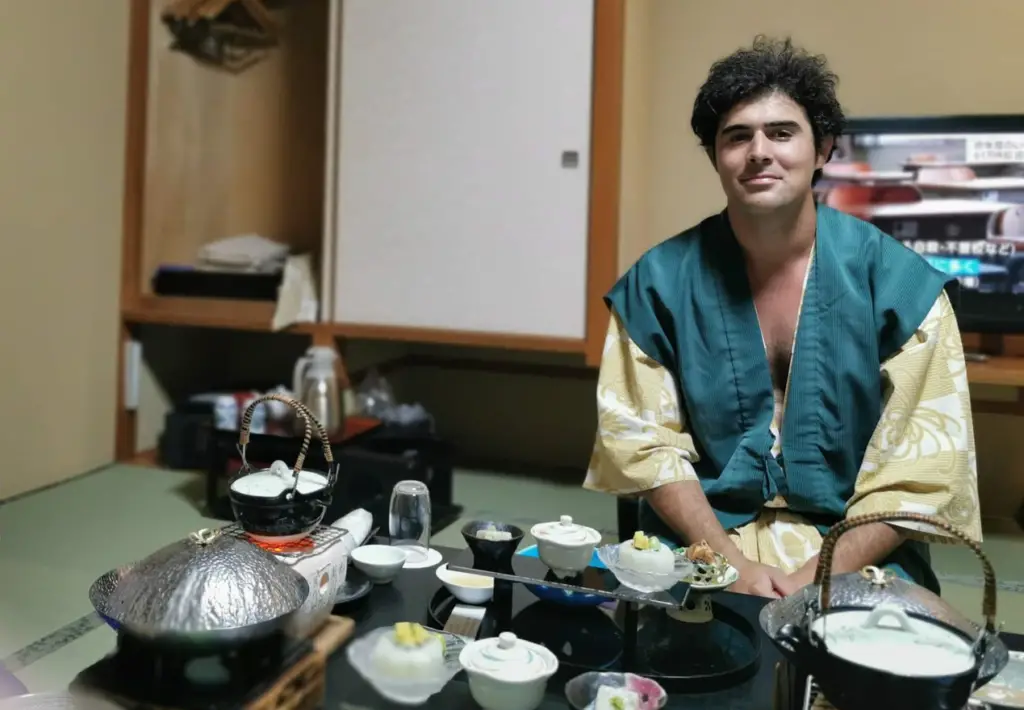
The cleanliness of Japan’s streets and the hyper politeness and civility of its citizens are certainly factors of appeal for the ESTJ personality type. However, when visiting Japan for a vacation, executive personalities likely won’t tolerate wandering around or exploring in a disorganized and aimless manner. As such, ESTJs could benefit greatly from pre-booking events or getting involved in tour groups to really be able to let go and enjoy themselves.
For these highly organized individuals who only settle for the best results, ESTJs would absolutely love an authentic ryokan experience where they get to embrace Japanese culture intimately without the need for “aimless exploring.” From Japanese-style dining to relaxing onsen baths, there is always something to do at these traditional ryokans, and ESTJs will love organizing their day around these authentic activities!
ESFJ – “Consul”
Of all the 16 personality types, the ESFJ is most likely to leave you with a warm and fuzzy feeling whenever you have an interaction with them. This is because they lead with the extroverted feeling function which allows them to understand the emotions of others, and their secondary function of introverted sensing means they can easily recall facts and events regarding other people as well as themselves.
Like the ISFJ, the ESFJ also values tradition. They have a strong sense of what is right and wrong and naturally gravitate to those who share their values. However, they maintain a level of respect even among those they regard as misguided or out of line with their ideals, making them well-received by just about anyone who had the pleasure of knowing them.
“So what’s your story?” – an ESFJ (probably)

While the ESFJ is similar to the ESTJ in their preference for organized planning to be involved in their vacations, they’re more willing to deviate from the plan if it means an opportunity for unique experiences involving people. Friendly and sociable by nature, these personalities are nicknamed “consuls” for their understanding and, at least on the surface, unconditional acceptance of others. As such, they can easily dive deep into conversations with people whom they just met!
In particular, ESFJs will absolutely love Shinjuku’s “Golden Gai” where they can jump from bar to bar meeting and getting to know locals and fellow travelers. Other activities of interest may include tea ceremonies, fishing restaurants, and arcades where there is a likelihood of engaging in activities with other people.
Explorers
(ISTP | ISFP | ESTP | ESFP)
ISTP – “Virtuoso”
The ISTP is arguably the most “no-nonsense” personality type out there, never sugar-coating their words or catering to people’s feelings when there are facts involved. By no means do they harbor ill will toward others, but they simply prioritize the hard facts in their relentless pursuit of knowledge, doing what they can to bring about truth and justice.
That being said, the ISTP isn’t as idealistic as the INFJ, rather, they prefer to take action to develop their practical skills and applicable knowledge rather than ponder abstract philosophical questions that have no concrete answers. As such, the “virtuoso” personality type typically excels at hands-on activities as their quest for practical knowledge pushes them to understand the ins and outs of any given field of interest.
As such, ISTPs enjoy engaging in interactive activities rather than sightseeing or relaxing by the beach. Fortunately for these types, Japan is so much more than a pretty country, but also offers countless activities that allow people to get involved in skill-based fun. Getting involved in Japan’s arcade and internet cafe culture would be a great start for the ISTP as they can satisfy their need for mental and physical engagement while also getting a feel for Japan’s pop culture and gaming scene.
“How does this work?” – an ISTP (probably)

Other aspects of Japanese culture that would be of great appeal to the ISTP include unique sports, martial arts, and musical performances. Kendo (sword fighting), sumo wrestling, and karate may be interesting for the virtuoso to get involved in by booking tickets to events or enrolling in classes to take part themselves. On the musical front, the ISTP may have a great appreciation for highly skilled shamisen (a kind of Japanese banjo instrument) performers who have mastered the art.
Clearly, there are so many things to list that the ISTP would love about Japan, after all, it’s a country of “kaizen” (continuous improvement) where excelling at various crafts is held in high regard. The ISTP will find great joy in Japan’s arcades, internet cafes, VR experiences, martial arts, musical performances, and other immersive activities that reflect both Japan’s traditional and pop culture sides.
ISFP – “Adventurer”
The ISFP is, in some sense, the emotionally sensitive version of the ISTP, taking on much of the same traits but in a more musical and artistic manner. Like the ISTP, they enjoy engaging in hands-on activities of sorts but place a greater emphasis on the feelings evoked by such participation rather than the results of knowledge or skill acquisition. For this reason, they are coined the nickname “adventurer” for their fearlessness in pursuing whatever activity or craft that invokes some kind of feeling or inner passion within them.
Thus, the ISFP is less likely to excel to great heights at practical skills like the ISTP, however their emotional sensitivity and alignment with their feelings make them more likely to find pursuits and endeavors that are meaningful to them and, in that way, they can excel at things using creativity and imagination rather than practical skills and knowledge.
Hence, it’s not surprising to see ISFPs excelling in the musical and arts industries, after all, even Michael Jackson had this personality type! While the ISFP and ISTP share a love for engaging in interactive activities, the ISFP is more likened to the INFP when it comes to creativity and imagination. As such, the ISFP can find great joy in activities that are not only immersive but also invoke feelings and emotions while stimulating the imagination. Activities like hiking in the mountains can fulfill the ISFP’s need for interactivity while also stimulating their imagination and wanderlust.
“You do you, I’ll do me” – an ISFP (probably)
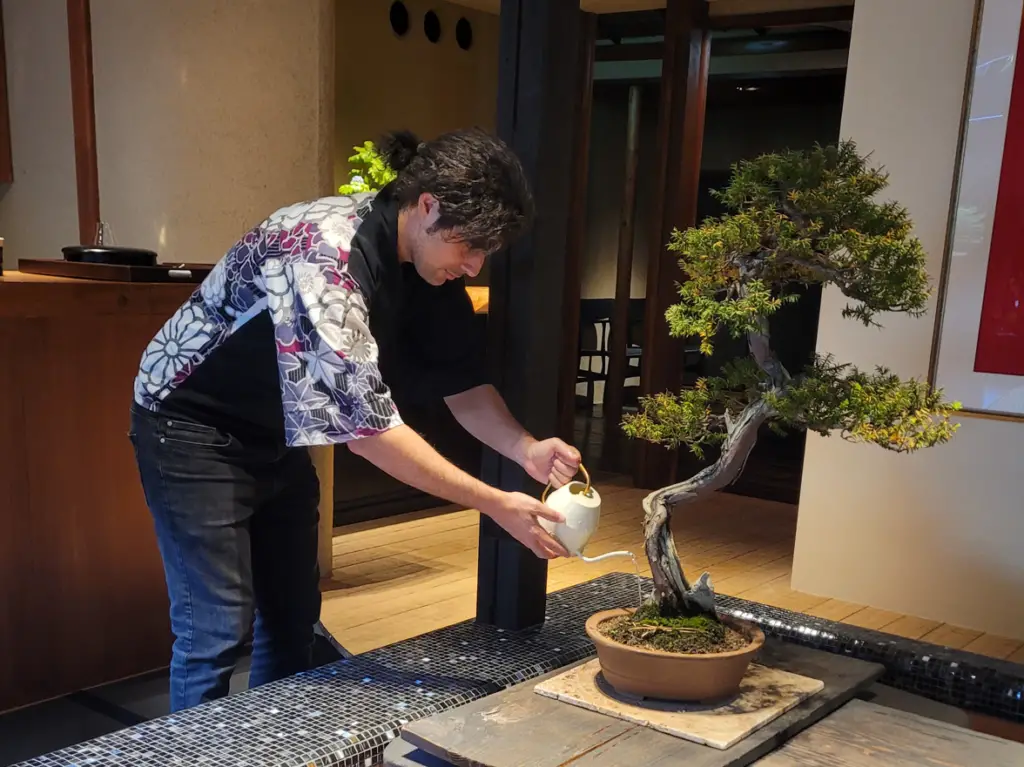
Japan has much to offer for these personality types, allowing them to balance between activities that foster creative self-expression as well as giving them beautiful scenic environments where their imaginations can run wild. One particular aspect of Japanese culture that ISFPs would find most uplifting is Zen Buddhism. Taking part in meditation exercises and embracing the calming effect of shrines and temples can do wonders for the ISFP’s inner world.
For the ISFP, taking part in zen meditation or simply hanging out at a quiet shrine, temple, or mountain may prove to be among their fondest memories of Japan. Furthermore, the ISFP will love the artistic side of Japan, enjoying Gion’s art and calligraphy museums, Harajuku’s fashion street, and Japan’s iconic bonsai trees.
ESTP – “Entrepreneur”
ESTPs are the true thrill-seekers of the MBTI world, taking an energetic yet relaxed and non-serious attitude toward life that allows them to pursue many different. While they’re coined as the “entrepreneur” for their ability to identify and act on opportunities at every corner, they’re also quite charming in the way they carry themselves and are usually “the life of the party” at social gatherings.
Leading with extroverted sensing and introverted thinking functions, the ESTP is bold but rational in their life pursuits, leaving little to chance and focusing on the things that they can do in the here and now. Instead of waiting for things to unfold or trying to make long-term plans for the future, they take life one day at a time. One moment they’re skydiving out of a helicopter and the next they’re enjoying a quiet cup of coffee with a friend.
“Let’s live it up!” – an ESTP (probably)

Seeing the potential for a good time in everything, the ESTP is likely to have a great time in Japan even if they were to wing their whole trip without any planning. Spontaneous and full of energy, they’re among the most flexible personality types when it comes to both work and fun, always ready to shift gears and take on a different activity. An action-packed day is what an ESTP strives for as they aim to make the most of every minute of every day, leaving little time for contemplation and reflection.
My recommendation for ESTPs is to grab tickets to some of Japan’s many theme parks such as Universal Studios, Fuji-Q Highland, and Tokyo’s Disneyland, where they can exhaust their energy quickly in one place and still have enough time for some of Japan’s more chilled activities like sightseeing shrines, relaxing at onsens, and enjoying restaurants and cafes.
ESFP – “Entertainer”
The difference between the ESFP and ESTP is like the difference between the ISFP and ISTP. It’s not that they’re so different in what they do but why they do it. Again, it comes down to emotional sensitivity versus logical reasoning, and the ESFP leans more toward the former when embarking on their crazy activities of fun and excitement.
Unlike the ESTP who navigates their dominant function of extroverted feeling with introverted thinking, the ESFP navigates their dominant function of the same kind with introverted feeling instead. This makes them more sensitive to the feelings of others as they tend to prioritize “the vibe” of the moment rather than relentlessly trying to get things done.
“Sing your heart out!” – an ESFP (probably)
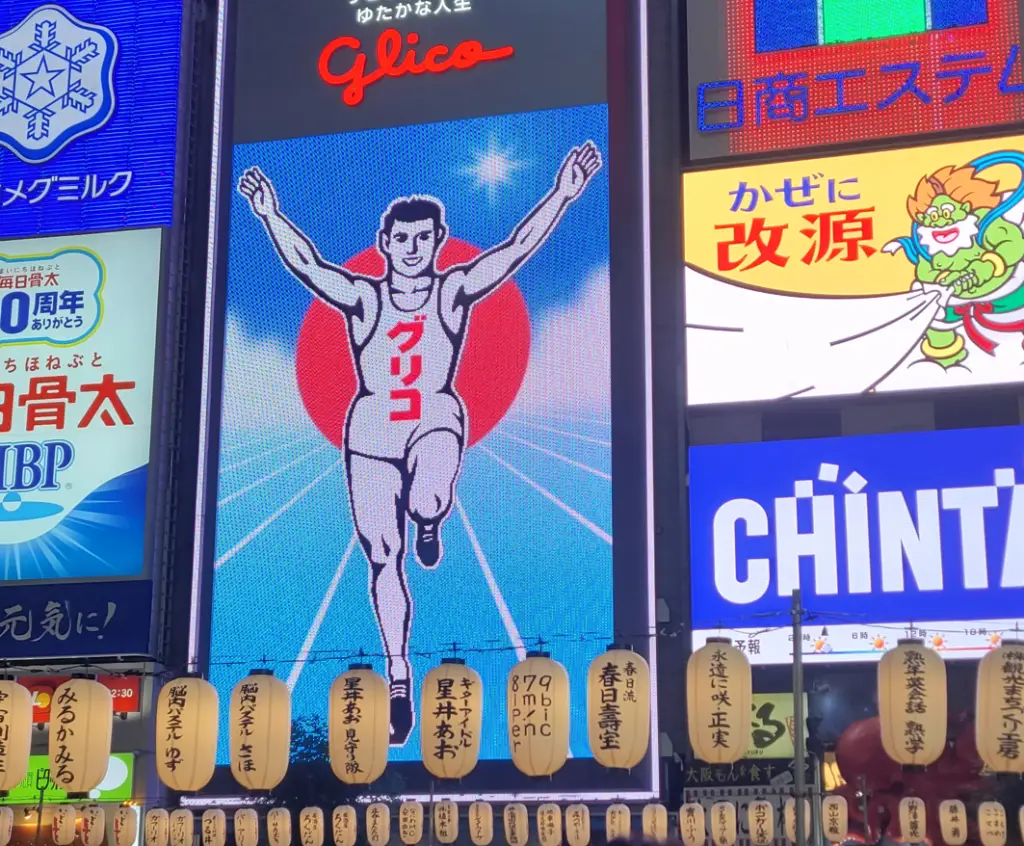
For that reason, the ESFP truly live in the moment as they enjoy even the simplest aspects of life, always ready to see the funny bright side of even the most treacherous of times. These personality types are like a ray of sunshine on a cloudy day, so there’s a good chance they’ll have a smile on their face no matter what they wind up doing!
While Japan is in many ways an “introverted society,” there are plenty of avenues where the ESFP can let their free spirits run wild such as karaoke bars, maid cafes, and entertainment districts. I would highly recommend these entertainer personalities to check out Odaiba’s entertainment island, Shinjuku’s Kabuchiko Street, and Osaka’s Dotonbori nightlife!
Of course, if you are planning to visit Japan, you’ll need a way to get around the country as efficiently and affordably as possible. Japan Rail provides an abundance of travel passes to suit your travel needs. So whether you are traveling individually or as a group, the JR Pass is every traveler’s go-to for getting around and making the most of your time in Japan!

